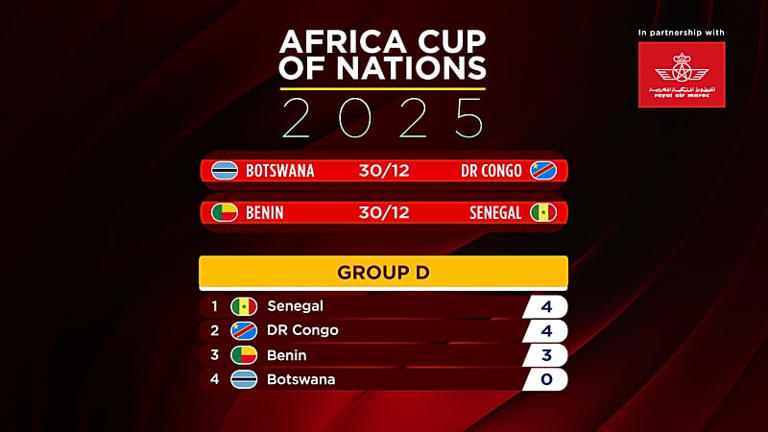The Cheetah's 1-0 win keeps their qualification hopes alive.
The Group D match against Botswana opened Matchday Two of the AFCON 2025 group stage.
Benin fans were delighted:
"Yes, it’s Africa! African game," a group of supporters told Euronews/Africanews. "We are like that, we like playing, dancing, making show. That’s how we are."
Botswana fans weren't happy with their team's choices:
"We have got another chance to play. Let the boys play the way they want to play. But defensive play for me, no, no, no, I’m not happy."
Others egged them on to do better in the games still to come:
"Football is football. We have nothing to lose Let’s put everything to it. Let’s give the fans a win. Let’s give everybody a chance, something to be happy about."
Meanwhile, in the historic port city of Tangier, Senegal and DR Congo played out a tense draw, with Sadio Mané rescuing his side late to keep both teams level on points in Group D.
In Fez, the cultural heart of Morocco, Nigeria and Tunisia played out a thrilling Group C encounter. Nigeria took the lead just before halftime and added two more in the second half.
Tunisia fought back with two late goals, but couldn’t find an equalizer, and Nigeria held on for a 3‑2 win. By Euronews






